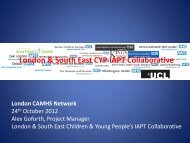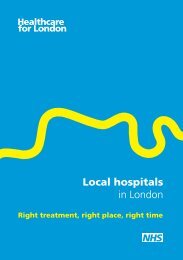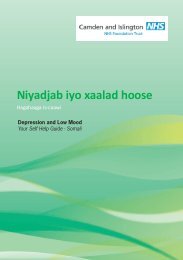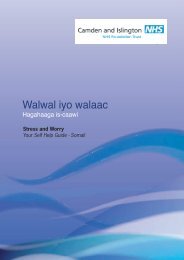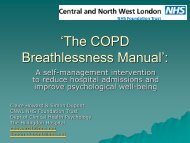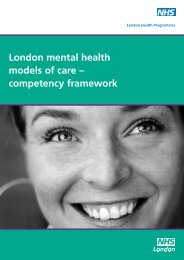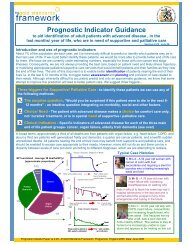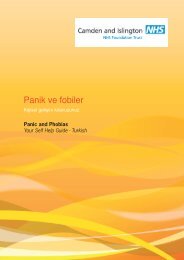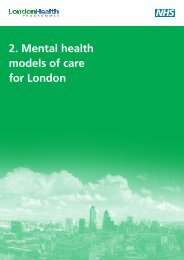NCEPOD: Trauma - Who Cares? - London Health Programmes
NCEPOD: Trauma - Who Cares? - London Health Programmes
NCEPOD: Trauma - Who Cares? - London Health Programmes
You also want an ePaper? Increase the reach of your titles
YUMPU automatically turns print PDFs into web optimized ePapers that Google loves.
5Hospital receptionPrimary survey and overallassessmentPrimary surveyIn 88.8% (706/795) of cases a primary survey wasdocumented on arrival in the emergency department(Table 45). In the opinion of the advisors this primary surveywas performed suffi ciently early enough in 680/706 (96.3%)cases, not suffi ciently early enough in 26 cases (3.7%)and there was insuffi cient data to comment in 89 cases(Table 46).Table 45. Documentation of a primary surveyNumber of patients %Yes 706 88.8No 89 11.2Total 795Appropriateness of initial responseThe advisors were asked to assess the initial response tothe trauma patient. Table 47 shows that of the 699 casesthat could be assessed, 94 (13.4%) were graded as havingan inappropriate initial response. In a further 96/795 cases,there was insuffi cient data to comment.Table 47. Appropriateness of initial responseNumber of patients %Yes 605 86.6No 94 13.4Subtotal 699Insuffi cient data 96Total 795Table 46. Timeliness of a primary surveyNumber of patients %Yes 680 96.3No 26 3.7Subtotal 706Insuffi cient data 89Total 795Despite the widespread adoption of the ATLS system noprimary survey was documented in 11.2% (89/795) of cases.Immediate management of life-threatening emergencies andidentifi cation of major injuries is a key to good outcomes forseverely injured patients and it is diffi cult to see how this canreliably happen in the absence of a primary survey.59




